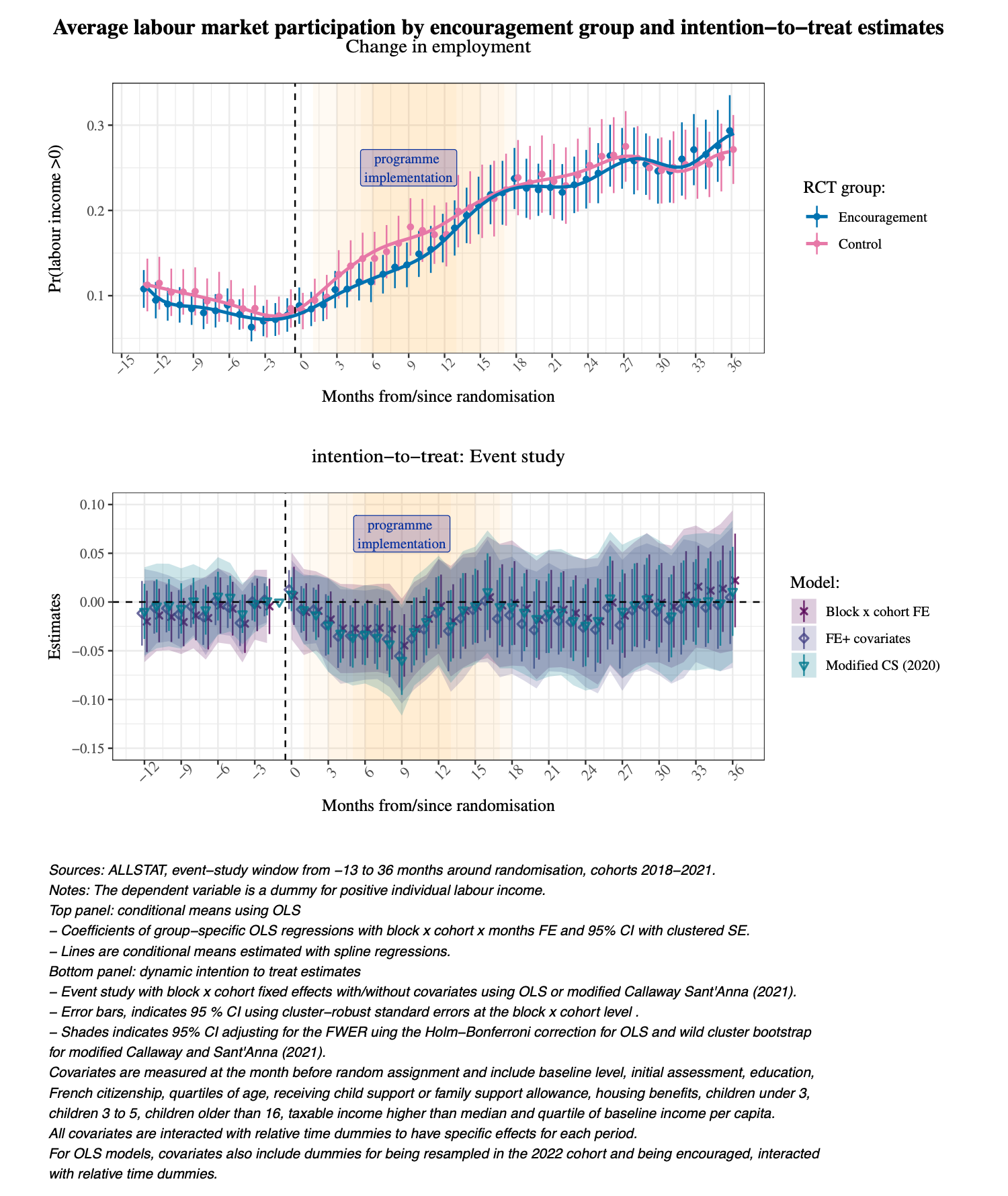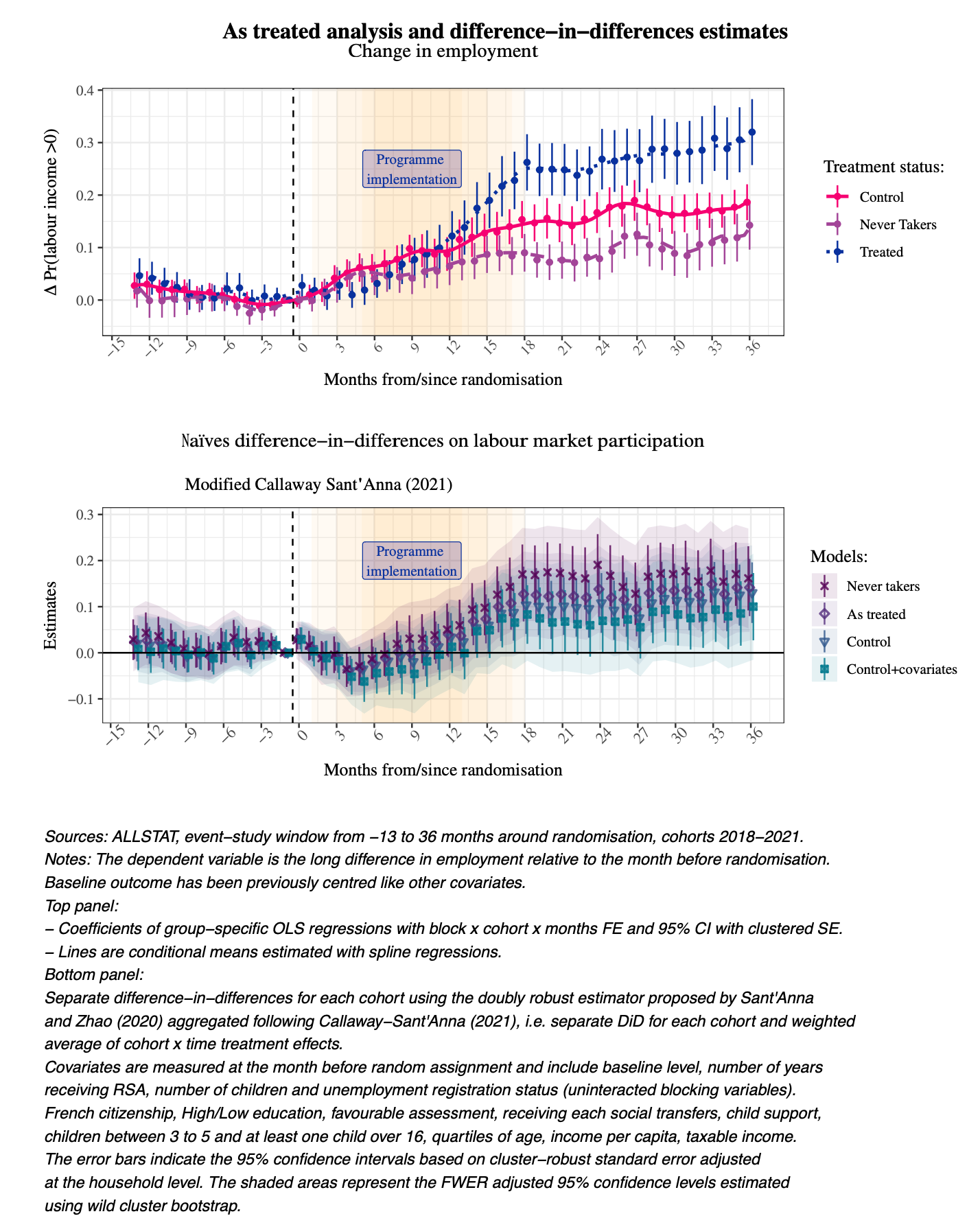New Preprint: Experimental Evaluation of a Welfare-to-Work Programme for Single Mothers in France
I’m pleased to share a new preprint: “Welfare-to-What? Experimental Evaluation of an Activation Programme for Single Mothers in Poverty in France.” 📄 Read the paper here
What This Paper Is About ?
This study presents one of the rare randomised evaluations of a welfare-to-work (WtW) programme in Europe and the first of its kind in France. Between 2018 and 2022, we evaluated a highly intensive WtW programme targeting long-term welfare-dependent single mothers in a large urban district.
The evaluation relies on an encouragement design among four cohorts of roughly 400 participants each and extensive matched administrative data on employment, income, and social benefits.
Key Findings
- Lock-in effects dominate early on: Employment and income dropped significantly during the programme (–8pp relative to a 20% baseline).
- No long-term employment gains: After the programme ended, participants were no more likely to be employed or out of poverty than the counterfactual up to 36 months from random assignment.

- Cash transfers rose: Treated households received more in social benefits over time—suggesting either a drop in earned income or larger household sizes.
- No effects during or after COVID: While the pandemic affected the overall labour market outcome dynamics, treatment effects were consistent across cohorts, with no evidence that the pandemic distorted the findings.
- Selection bias matters: Modern ‘as treated’ difference-in-differences models using rich covariates failed to recover experimental estimates. Non-experimental evaluations would have erroneously concluded the programme worked.

Policy Implications
Despite good intentions and generous resources (≈ €2,800 per participant, 4× the usual), the programme did not help participants find stable employment or exit poverty. If anything, it imposed opportunity costs on already-vulnerable mothers.
These results caution against assuming that intensive WtW programmes will “pay for themselves” through reduced welfare rolls or improved earnings. They also show that caseworkers tend to refer higher-potential individuals, inflating the apparent effectiveness of such programmes when not evaluated with randomisation.
Finally, the findings arrive just as France rolls out a major reform making activation mandatory for all welfare recipients—including single parents. This paper provides an upper bound on what such policies might achieve, and it urges a rethinking of how we define and measure “success” in activation strategies.